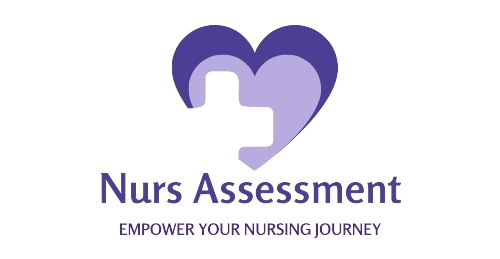Hypertension is among the most common essential health problems in the world. Nurses develop holistic nursing care plan for hypertension after understanding hypertension completely. They focus on its causes, assessment, nursing interventions, monitoring, patient education, and collaborative care. Moreover, a key role in directing patients to better control blood pressure and improved health can be done by the nurses.
Furthermore, the individualized care plans and interdisciplinary approaches are critical in addressing the multifaceted aspects of hypertension management. Hypertension is the term that describes high blood pressure. Indeed, it is very dangerous because it has the power to crash the body system through heart attacks, strokes, and an assortment of other unpleasant surprises.
Therefore, it is very important to know everything about this risky medical condition. Hypertension is caused by genetic factors, poor lifestyle choices, excessive salt consumption, and even stress push blood pressure to unhealthy levels. However, the nursing management of hypertension is very important indeed.
Significance of Nursing Care Plans for Hypertension
We can’t deny the fact that Nursing care plans for hypertension are essential to decrease the blood pressure. They provide a clear path through which hypertension can be controlled and prevent one’s health from drastic problems.
- Assessment & Diagnosis of Hypertension
Nursing diagnosis for hypertension plays a significant role in preventing a person’s life from any sort of danger. The healthcare professional will first break out the blood pressure cuff and take the person’s readings. If they are consistently at the high end, above 140/90 mmHg then a person is suffering from hypertension.
Furthermore, the efficient nurses use a mixture of the following: stethoscopes, blood pressure cuffs, and maybe just a touch of mind reading in order to evaluate your hypertension. Besides this, they will also take an extremely detailed look into your medical history and risk factors to understand it completely.
- Nursing Interventions to Handle Hypertension
Nursing intervention for hypertension involves various things. It includes pharmacological approach, lifestyle management, stress management, and much more are there in the list.
- Pharmacological Approach
Medication management is a major tool used in the treatment of hypertension. Whether it is the use of beta-blockers or ACE inhibitors, nurses are specialized in facilitating and understanding the hypertensive patient and his medications. Moreover, their care plans also involve reporting the side effects of the medication in a timely manner.
- Diet and Lifestyle
Nurses can help their patients by suggesting nutritional and life plans to take the needed steps to lead them towards health. No doubt, these are the simple recommendations of reduction and encouraging exercise, from a cut in salt intake to regular exercise, that can help patients to take control over their life when dealing with hypertension. Also, all these things in the nursing care plan for hypertension samples will promote a patient’s health quality.
- Stress Management and Relaxation Techniques
In the present times, stress can be damaging to our bodies, particularly for those with high blood pressure. Stress management techniques, including deep breathing exercises, mindfulness, and yoga, can be taught by nurses in order to keep blood pressure under control.
4) Monitoring and Evaluation of Care Plan for Hypertension
Furthermore, there is a need for regular monitoring of care plans. Because continuous monitoring is the navigational tool that provides direction to the course of hypertension management. Also, the evaluation involves monitoring the role of nurses for the measurement of blood pressure values, the effectiveness of medication, and early warning identification of potential complications.
Nurses monitor the effectiveness of the care plan for hypertension from blood pressure recordings to the evaluation of changes in lifestyle. This constant evaluation is carried out so that improvements may be introduced as and when necessary to meet the desired patient outcomes.
5) Patient Education & Lifestyle Modifications
No one can deny that patient education stands out as the first management of hypertension. Furthermore, the nurses are empowered to teach the patients about the condition, potential risks that may occur, and the importance of taking medications accordingly. Besides this, nurses also tell them how lifestyle modification can dramatically influence the control of blood pressure.
Nursing care plan for hypertension samples are really helpful in managing hypertension. There are numerous ways from incorporating heart-healthy foods to stress management through which lifestyle modification takes place. No doubt, lifestyle change has great importance in controlling blood pressure. The role of the nurse is to assist patients in making functional lifestyle changes that help in supporting long-term blood pressure control and overall health.
6) Collaborative Care & Interdisciplinary Approach
Indeed, team-based care for patients with hypertension is very beneficial for them. A multi-disciplinary approach to hypertension management and developing a nursing plan for hypertension is needed.
Nurses work with healthcare professionals at all levels: physicians, dietitians, and pharmacists to improve the attainment of the best hypertension care that turns multifaceted in nature. It ensures a holistic improvement of patient well-being.
Furthermore, nurses through collaboration with health professionals engage a pool of expertise to actualize the best care for hypertension. This interdisciplinary approach assures patients get care that is properly coordinated with respect to all determinants of their health care for better outcome.
Conclusion
In conclusion, the nursing care plan for hypertension should be a very useful guideline for the healthcare providers in rendering care that is holistic and patient-centered. Nurses empower individuals for better management of hypertension and enhancement of quality of life through evidence-based interventions, promoting lifestyle modification, and fostering collaborative relationships. Nursing care plans can reduce the burden of hypertension and realize better long-term health outcomes for their patients through proactive education, monitoring, and support programs initiated.
FAQs
- What is the nursing care plan for hypertension?
A best nursing care plan for hypertension involves assessment of a patient’s medical history, potential risk factors, and blood pressure measurement. Moreover, it also includes implementation of nursing interventions like medications and lifestyle modifications.
- What are the interventions for hypertension?
It includes a healthy diet plan, physical activity, stress management, and relaxation.
- What are the 5 components of nursing care plans?
- Assessment
- Diagnosis
- Outcomes
- Implementation
- Evaluation

